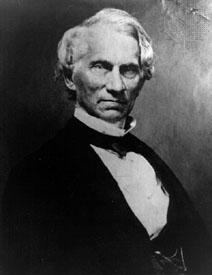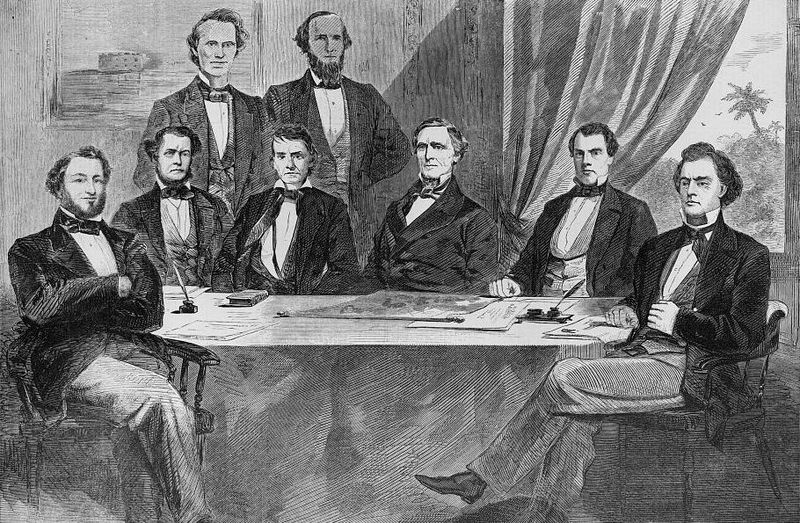<Back to Index>
- Jurist Robert Joseph Pothier, 1699
- Poet Thomas Warton, 1728
- Secretary of the Treasury of the Confederate States Christopher Gustavus Memminger, 1803
PAGE SPONSOR


Christopher Gustavus Memminger (January 9, 1803 – March 7, 1888) was a prominent political leader and the first Secretary of the Treasury for the Confederate States of America.
Memminger was born in Vaihingen an der Enz, Germany (in what was then the Duchy of Württemberg). His father, Gottfried Memminger, was a military officer who died in combat a month after his son's birth. His mother, Eberhardina Kohler Memminger, immigrated to Charleston, South Carolina, in the United States but died of yellow fever in 1807. Christopher was placed in an orphanage.
Memminger's fortunes changed when, at the age of eleven, he was taken under the care of Thomas Bennett, a prominent lawyer and future Governor. Memminger was quite intelligent and entered South Carolina College at
the age of 12 and graduated second in his class at 16. Memminger
passed the bar in 1825 and became a successful lawyer. He married Mary
Wilkinson in 1832. He entered state politics and served in the South Carolina state
legislature from 1836 to 1852 and 1854 to 1860. Memminger was a staunch
advocate of education and helped give Charleston one of the most
comprehensive public school systems in the country. Memminger was considered a moderate on the secession issue. But after Lincoln's election,
Memminger decided secession was necessary. When South Carolina seceded
from the United States in 1860, Memminger was asked to write the Declaration of the Immediate Causes Which Induce and Justify the Secession of South Carolina from the Federal Union which outlined the reasons for secession. When other states also seceded,
Memminger was selected as a South Carolina delegate to the provisional congress which formed the Confederate States of America and was the chairman of the committee which drafted the Confederate Constitution. The twelve man committee produced a provisional constitution in only four days. When Jefferson Davis formed
his first cabinet, Memminger was chosen as Secretary of the Treasury on
February 21, 1861. It was a difficult task, in view of the financial
challenges facing the Confederacy. Memminger attempted to finance the
government initially via bonds and tariffs (and confiscation of gold
from the United States Mint in New Orleans), but soon found himself forced to more extreme measures such as income taxation and fiat currency.
Memminger had been a supporter of hard currency before the war, but
found himself issuing increasingly devaluated paper money, which by
war's end was worth less than two percent of its face value in gold. Memminger resigned his post as Secretary of the Treasury on July 18, 1864 and was replaced by fellow South Carolinian George Trenholm. Memminger returned to his summer residence in Flat Rock, Henderson County, North Carolina.
In the post war years, Memminger returned to Charleston, received a
presidential pardon in 1866, and returned to private law practice and
business investment. He also continued his work on developing South
Carolina's public education system and was voted to a final term in the
state legislature in 1877. He was featured on the Confederate $5.00 bill.